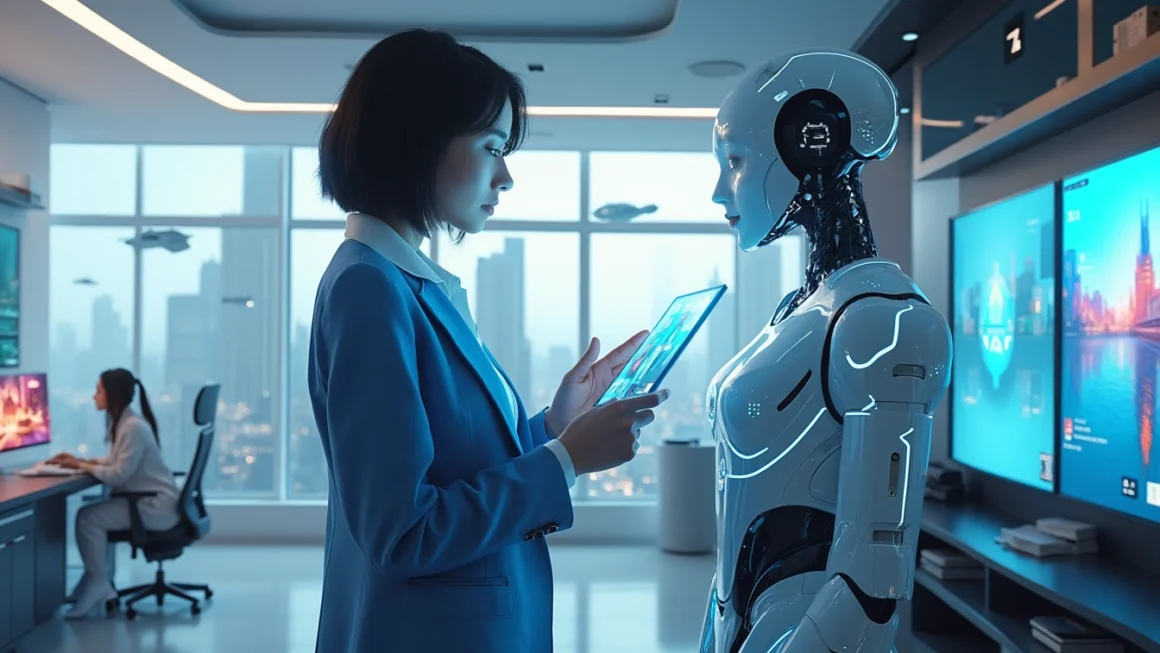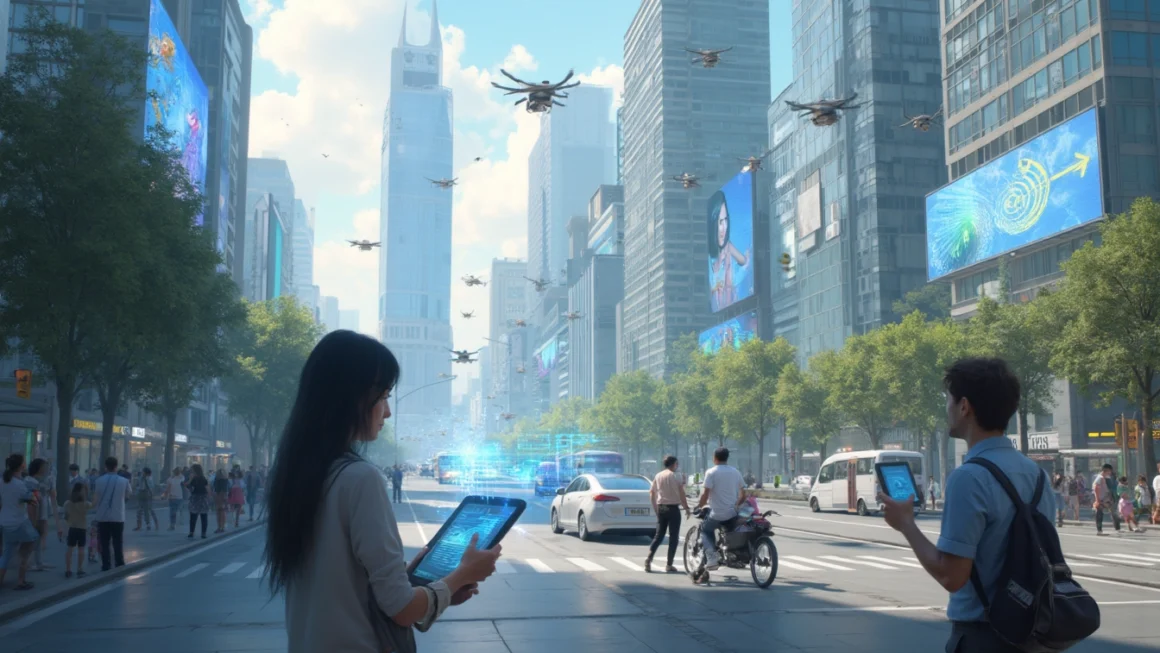Understanding the Implications of AI in the Workplace
Table of Contents
Artificial Intelligence (AI) is rapidly transforming the way we work, bringing both excitement and concern to employees across various industries. As AI technology continues to advance, it’s crucial to examine its potential impact on jobs and the workforce.
The Rise of AI in the Workplace
AI has already made significant inroads in many sectors, from manufacturing to customer service. Its ability to process vast amounts of data, recognize patterns, and make decisions faster than humans has led to increased efficiency and productivity. However, this technological revolution has also sparked debates about job displacement and the future of work.
Job Displacement Concerns
One of the primary concerns surrounding AI is its potential to replace human workers. A recent survey revealed that nearly half of UK workers believe AI could take over their jobs within the next five years. This fear is particularly prevalent in industries where repetitive tasks are common, such as data entry, customer support, and certain aspects of manufacturing.
However, experts argue that while AI may eliminate some jobs, it will also create new opportunities. The key lies in adapting to these changes and developing skills that complement AI capabilities.
Adapting to the AI Era
To thrive in an AI-driven workplace, workers need to focus on developing skills that machines cannot easily replicate. These include:
- Critical thinking and problem-solving
- Emotional intelligence and interpersonal skills
- Creativity and innovation
- Adaptability and continuous learning
By honing these skills, employees can position themselves as valuable assets in a workplace where AI handles more routine tasks. Embracing automation tools and learning to work alongside AI can also enhance productivity and job satisfaction.
The Role of Employers and Policymakers
As AI continues to reshape the job market, employers and policymakers have a crucial role to play. Companies should invest in reskilling and upskilling programs to help their workforce adapt to new technologies. Governments, on the other hand, need to develop policies that support workers during this transition, such as:
- Providing access to affordable education and training programs
- Implementing social safety nets for displaced workers
- Encouraging innovation and entrepreneurship in AI-related fields
The Future of Work with AI
While the impact of AI on jobs may seem daunting, it’s important to remember that technological advancements have always led to changes in the workforce. The industrial revolution, for instance, eliminated many manual labor jobs but created countless new opportunities in manufacturing and related industries.
Similarly, AI is likely to create new job categories that we can’t yet imagine. From AI trainers and ethicists to data scientists and robotics engineers, the future job market will require a diverse range of skills that combine human creativity with technological expertise.
Embracing the AI Revolution
Rather than fearing AI, workers should view it as a tool to enhance their capabilities and productivity. By embracing AI and developing complementary skills, employees can position themselves for success in the evolving job market.
Employers, too, should see AI as an opportunity to innovate and improve their operations. By implementing AI responsibly and investing in their workforce, companies can create a more efficient and productive work environment that benefits both the business and its employees.
Conclusion
The integration of AI in the workplace is inevitable, but its impact on jobs doesn’t have to be negative. By focusing on developing uniquely human skills, embracing lifelong learning, and adapting to new technologies, workers can navigate the AI revolution successfully. Similarly, with the right policies and support from employers and governments, we can harness the power of AI to create a more productive, innovative, and inclusive workforce for the future.




